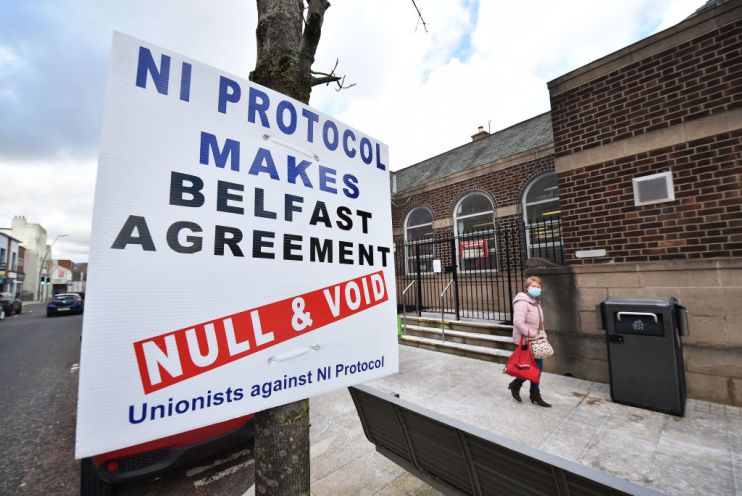UK and EU plan post-Brexit Northern Ireland hotline for officials

The UK and the EU are planning to create an emergency hotline for officials to discuss post-Brexit problems in Northern Ireland.
European Commission vice president Maros Sefcovic said the Brexit treaty’s Northern Ireland protocol needed “day-to-day care” and that Brussels and London both wanted to de-escalate tensions.
Tensions have escalated in Northern Ireland since the EU’s quickly overturned decision to block goods between the UK and EU last month over a vaccines dispute.
The move highlighted the potential for sectarian tensions in Northern Ireland, which still follows the EU’s single market and customs union rules unlike the rest of the UK.
This has meant the creation of a so-called border in the Irish Sea as some goods travelling between Great Britain and Northern Ireland require customs checks, infuriating some Northern Irish Unionists.
Some border guards received death threats at Northern Ireland ports two weeks ago, forcing a temporary stop to checks.
Sefcovic told the Financial Times that he and Cabinet Office Minister Michael Gove had discussed creating a hotline to address problems at the border “at the moment they arise, before they become big, big issues”.
“What is very important in such a difficult situation is to have trust in your partner and to work together to resolve the issues,” he said.
“Until the dust settles down and the new [post-Brexit] system is introduced, I would say the relationship would really need day-to-day care.”
Gove has requested that there are extensions to the implementation of all customs checks in Northern Ireland until 2023 in a bid to better prepare businesses for the changes.
However, Sefcovic said last week that some of the issues were of the UK’s making by not giving the EU access to its new customs IT systems as promised.
The European Commission vice president met with Gove last Thursday to discuss post-Brexit issues.
Sefcovic said the talks had been conducted in a “very positive atmosphere” and that he was “absolutely convinced that the protocol is the solution and not the problem”.